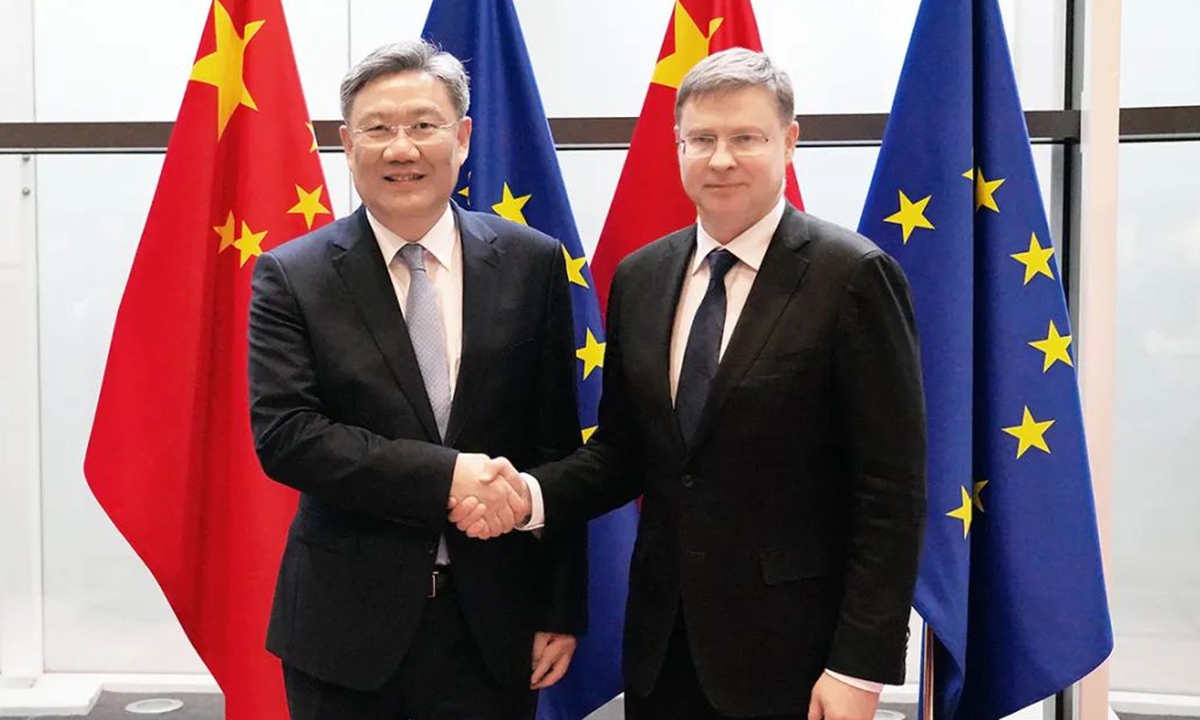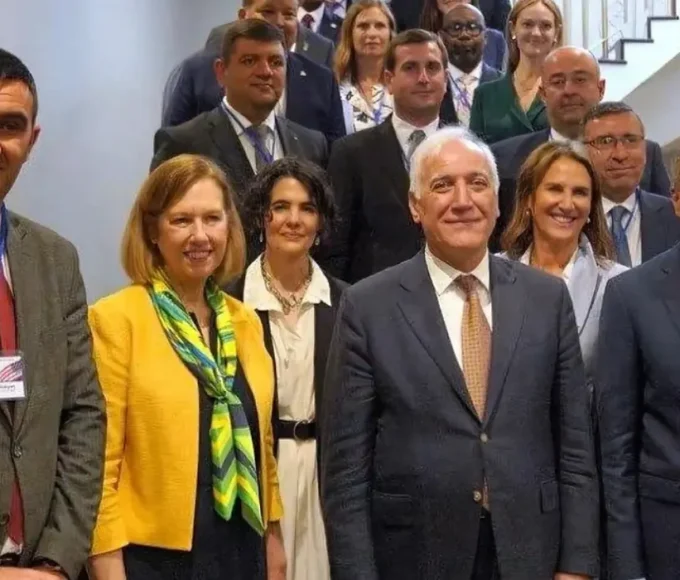For the first time since the start of the COVID-19 pandemic, officials from China and the European Union (EU) met on Monday for a high-level economic and trade dialogue, achieving a number of “mutually beneficial outcomes”. profitable” thanks to “frank and pragmatic” interviews.
The meeting highlights how the world’s second-largest economy and the European trading bloc are working to bridge their differences and strengthen cooperation amid a slowing global economic recovery.
In fact, China and Europe have long maintained strong economic interdependence. Over the past 20 years, the volume of trade between China and the EU has increased ninefold. EU investment in China almost tripled, and China’s investment in the EU increased from zero to 104.4 billion US dollars.
Bucking the global trend of slow recovery, the bilateral trade volume between China and the EU reached a record high of $847.3 billion in 2022, an annual growth of 2.4%. . This averages over $1.6 million worth of trade per minute.
“Either we succeed together or we fail together,” warned French international affairs expert Bruno Guigue, describing the Chinese and European economies as “extremely interdependent.” According to him, the two countries share a common future characterized by mutually beneficial cooperation in areas where the expertise of one can be useful to the other.
In the long term, “mutually beneficial cooperation” will inevitably produce results, especially as the European economy finds itself increasingly caught up in a spiral of high inflation and low demand. The European Commission recently lowered its economic growth forecast for the EU in 2023, from 1% to 0.8%. For the year 2024, these forecasts increased from 1.7 to 1.4%.
This is where the Chinese market comes into play, with a large number of European companies looking to expand their presence in the world’s largest market.
In April, Volkswagen announced an investment plan worth one billion euros (approximately 1.05 billion US dollars) to create a research and development center for intelligent connected electric vehicles in China. Spanish grinding machine manufacturer Danobat Group created its sixth largest discovery center in Shanghai this year, accelerating its expansion into China. To address the Chinese market, Bosch Group, a German automotive supplier, has also made substantial investments in building a research center for electric vehicles and autonomous driving in the Chinese city of Suzhou.
Clearly, in order to explore new markets, a growing number of European companies are “voting with their feet”. As China opens up more widely and its business environment improves, more countries will join. A recent poll commissioned by the European Council on Foreign Relations reveals that the view that China is a “necessary partner” of Europe prevails in almost all countries surveyed.
However, there is no need to avoid the challenges ahead. Two weeks ago, the EU announced an anti-subsidy investigation into Chinese electric vehicles, an investigation of a protectionist nature.
Such actions reflect the lag in Europe’s electric vehicle sector more than China’s, and some European observers have already expressed concern about it.
Regarding the investigation, Ferdinand Dudenhoeffer, director of the CAR Automotive Research Center in Duisburg, Germany, said: “There is a very big risk… We need cooperation with China, not a trade war . It would be a bad choice for Germany, because Germany has a lot to lose.”
Instead of systematically reducing its so-called “dependencies” on China, the EU should walk its talk by asserting that it has no intention of “reducing risks.” As long as both parties continue to manage their differences through dialogue and consultation, a fair, non-discriminatory and predictable market environment can be maintained.
After the European Commissioner for Trade Valdis Dombrovskis, who has just co-chaired on Monday with Chinese officials the 10th High-level Economic and Trade Dialogue between China and the EU, the European Commissioner for Energy Kadri Simson and the head of diplomacy European Union Josep Borrell is expected to visit China soon.
This article is originally published on french.xinhuanet.com/









